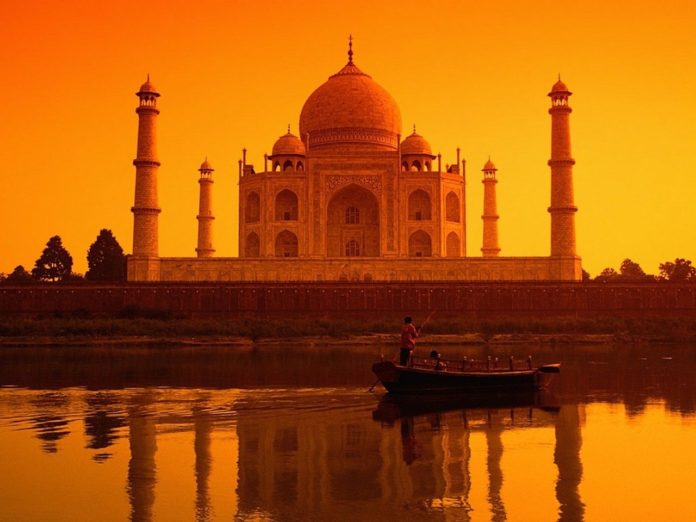Indian parents or parenting has always been at the receiving end from almost all modern schools of parenting styles. It has also been looked down upon in the west for their over presence in their child’s life and some of it can also be attributed to the over exaggerated, stereotyped, loud Indian parents in the movies like “West is West” and “Bend it like Beckham” or our very own over sentimental sappy sagas “Kabhi khushi kabhi gham”. The Indians are shown to be ‘I don’t give a damn for my kids’ happiness and I am only here in this world to make sure that he doesn’t get what he truly wants, but the reality is as different as it can get. At least for the Generation Y parents who not only let their kids have a life, the truth is they have a life too! Also with Indians making right noises at the right places it is only obvious for us to find out what is it that these parents are getting right.
Those who feel that Indian parents are too strict and are always dressed in shining armours and swords to beat their kids for better grades should also know that Indian origin executives head a dozen Fortune 500 firms. The parents’ rules and dedication towards their studies makes them work hard and being pushed to do well in maths and science makes them better engineers and logical thinkers.
The parents’ obsession with English language, whether good or bad, gives Indian kids an innate language advantage later in life or a global edge and a vigilant eye of parents help them not indulge in drugs and other distraction at an early age. But still some believe that Indian style of parenting is too overpowering and doesn’t give the choice to children. To that argument, it can be said that generalisation cannot happen on behalf of 1.2 billion populations but the upper middle class and also the educated middle class is getting that mix of spoiling and discipline quite right. Here are the few pointers that might give you an inside into Indian parenting style.
- Indian Children don’t have to worry about money for college: It might seem like unfair or shocking to a lot of non Indians but Indian parents take a great pride and interest in education and academics of their kids and they work hard to pay for the tuition or college fee for almost all the academic and professional endeavour of their kids. Whether it’s right or not, is a different issue but for generations Indian parents pay for almost everything for their kids till they get their first big job and contrary to their western counterparts do not want them to fund for their own education, work part time while studying or even spend on their marriage. Ask those who have really huge study loans and they would tell you what this means.
- India doesn’t have alarming rate of teen pregnancies or single mothers’: While the new age parent is all up for freedom and choices but he is still strict about the rules and these rules do get followed by children to a larger extent. Some may call it ancient or old school but because of the typical Indian way of bringing up children, India doesn’t have an ever alarming rate of teen pregnancies or drug problems as in lot of other nations. Also because of the low divorce cases as compared to USA, UK or other European countries, the Indian children are brought up with both set of parents and large no. of cousins in extended families, giving them a lot of stability in life.
- Good role models: Most Indian men still don’t answer back when talking to their parents even if they themselves know better. And it may seem like the “Oh! the sky has fallen” to non Indians or being Mama’s boy to others but seeing such practices at home also prepares children in the house to mind their tone and manners while talking to the parents or other elders. Few might call it regression but Indians call it ‘Respect’.
- Indian Moms still cook three fresh meals every single day: With the globalisation and super store boom, processed food is as easily available in India as it is in any other part of the world but in most of the households, freshly cooked meals three times a day are the norm and deviations are not many. And meals cooked by mothers remain the life time favourite of kids.
- Grandparents and Grandparents: While joint family system is losing its sheen in modern India, the newly married couple still want their parents to be around, if not in the same house. So living in the same block or the same neighbourhood gives both the privacy as well as the opportunity to be with each other in times of need. Such an arrangement work wonders for working parents where both set of grandparents are more than happy to take care of the children and also look after the house when someone is sick and vice versa. Children brought up by grandparents are definitely well off emotionally than being raised at crèche or by baby sitters.
- Marriages are for keeps: According to UNICEF, the divorce rate in India is one of the lowest in the world. As per another report, out of 100 marriages in USA about 40% result in divorce and that ratio is 1% in India. Also an article in dailymail.uk, research suggests that the arranged marriages are far more likely to lead to lasting affection than marriages of passion, which is a norm in India. Dr. Robert Epstein of Harvard has studied the subject of arranged marriages for eight years and looked at the approach taken in cultural groups such as Indian, Pakistani and Orthodox Jewish, where he interviewed more than 100 couples in arranged marriages. He came to the findings that ten years on, the affection felt by those in arranged marriages is typically twice as strong. He further says that ‘In the west marriages are easy to get out of. But in arranged marriages, the commitment is very strong. They get married knowing they won’t leave, so when times are harder- if they face injury or trauma-they don’t run away. It brings them closer.’
- Tending to the ailing parents in old age: Taking care of the parents when they can’t help themselves is inherent in Indian families. It could also be attributed to the fact that they have seen their parents and grandparents go through the same process. The children are expected to look after the parents and there is a lot of social stigma attached if they don’t. Yes the new ‘old age’ homes are on the rise and people are getting used to the idea but by and large parents are considered the responsibility of children and unlike lot of other nations, they live with their children and grandchildren and not alone, living a full life.
- Impulse Control: Indians because of the widespread poverty, lack of opportunities and sheer poor state of affairs know money’s worth and are taught about impulse control from an early age, which comes handy when they are taking financial decisions. This is also the reason why most Indian immigrants are richer than the natives in almost all the western world.
- Spirituality: Indian children are exposed to spirituality from an early age whether it’s the religious ceremonies happening in neighbourhood or a spiritual lesson at a relative’s place, Indians are supposed to get involve in lot of such practices by default as there are multiple festivals and occasions where they get in touch with their customs, traditions and spiritual side and which helps them later in future to deal with stress and get a better perspective of things.







Awesome post! I couldn’t agree more to all the positives. It is good to read some positives among all the negatives we hear about India all the time. Though westernized, Indian parents haven’t given up their indianness 🙂
[…] Those who feel that Indian parents are too strict and beat their kids for better grades should also know that Indian origin executives head a dozen Fortune 500 firms. […]
awesome writing and truly great insights, so true…way to go!!!
great window to indian culture and all its merits for the world to read and learn from!